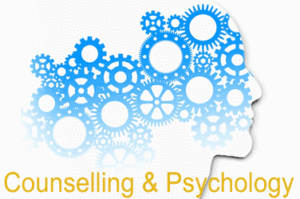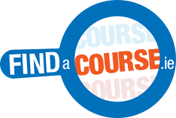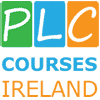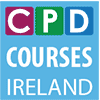
Modern Ireland has become much more progressive in terms of the attitudes towards mental health and psychological wellbeing. We can now readily access: life coaches, psychotherapists, guidance counsellors, counselling psychologists & other similar services. There are various professions that come under the umbrella term of ‘Counselling’. What do they have in common? They all help clients resolve issues in a non-judgemental and productive manner within the framework of an agreed counselling contract.
Counsellors help people to explore feelings and emotions that are often related to their experiences (past and present). This allows their clients to reflect on what is happening to them and consider alternative ways of seeing, feeling and doing things. It is both the confidential and caring setting that enables the client to open up and to express their feelings; perhaps understand themselves from a different perspective. Fundamental to almost all forms of counselling is establishing trust by listening attentively and non-judgementally. The role is also likely to involve asking open questions in order to help people understand why they feel a certain way.
The role of a counsellor is to actively listen to people in need. Those seeking counselling may include individuals, couples, families or groups and the role of the counsellor is to help clients resolve the conflicts or problems presented. Issues may include personal setbacks: such as coming to terms with bereavement, infidelity, dealing with anxiety attacks or social phobias perhaps. Counsellors also work with difficulties between a group of people, such as resolving difficulties in a marriage or helping a team of individuals work together in a more effective manner. Many counsellors will choose to specialise in a particular area.
Counselling will likely be tailored to meet the needs of the client, the group and the circumstances involved. The techniques used will depend on the training the counsellor has done and often their preferred way of working. Most common techniques include:
- Non-directive counselling
- Problem-solving therapy
- Cognitive and behavioural techniques
- Behavioural therapy
- Interpersonal therapy
- Psychodynamic counselling
One of the most popular techniques now being sought by clients is cognitive behaviour therapy. Recognising that our thoughts inform and influence our feelings and behaviour; this therapy focuses on cognitions and the part they play in negative feelings and inturn behaviour not conducive to good mental health or living a fulfilling and fear-free life. There is a great sense of achievement for a counsellor who assists a client once immobilised by panic attacks to regain their confidence and ability to overcome such attacks.
As a career, it is becoming increasingly popular, however it does have its challenges. Working with the human psyche can be challenging, you will face people who are resistant to change and may be disinclined to face up to certain truths. You will meet reluctance, resistance, projection, transference; which tests the best of those in the field.
Responsibilities are likely to differ substantially depending upon the area of practice; however, common to most will be:
- Forming a counselling/therapeutic contract with clients.
- Listening to the client’s story as presented and sometimes advising on the best course of action/care for individuals, couples, families and/or clients to resolve issues.
- Providing comprehensive and methodical analysis and notes to assist in the diagnosis or resolution of a problem.
- Challenging the perceptions, cognitions of clients that produce maladaptive behaviour – all done in an empathetic and productive manner.
- Referring clients to qualified medical professionals as and when necessary.
- Supervising discussions between parties to help them resolve a situation in the most amicable means possible. This may involve acting as a formal mediator but is unlikely to include any form of binding arbitration.
- Acting within the ethical bounds of the profession, maintaining client/ patient confidentiality and ensuring that emotional distress is minimised.
- Keeping records of discussions.
- Attending supervision
The core skills you will require to be a counsellor is an empathetic way of being and listening that is genuine, non-judgemental and respectful. You have to adhere to strict ethics when dealing with clients in a counselling relationship. It is imperative that you are able to remove yourself from the work environment and maintain a professional distance from the subject when appropriate.
Many counsellors will tell you they started working as a volunteer before they realised their wish to pursue it as their main career. You do not need a qualification to work for charities like The Samaritans for example, but expect to receive excellent training in active-listening skills. Working voluntarily is the ideal way to establish have you got all the necessary skills and patience to be a counsellor.
To become a counsellor, one has to go on their own journey to self-discovery and healing, as it is often the case that clients will evoke painful memories or issues for you, that might be overcoming unless you have dealt with them yourself in a counselling setting. Once trained as a counsellor, you will have to attend supervision on a regular basis also.
If you wish to become a professional counsellor it is advisable to only study courses that are accredited. The majority of accredited courses can be taken full time (one year) or part time (over two to three years). The courses centre on the fundamental skills needed to counsel professionally and provide you with a broad spectrum of skills and techniques to employ on a day-to-day basis.
PCI College offer a range of counselling and psychology courses, such as the Professional Certificate in Cognitive Behavioural Therapy, the MSc Addiction Counselling and Psychotherapy and workshops on Positive Psychology, more information can be viewed at the following link; https://www.findacourse.ie/colleges/pci-college/counselling-psychology/
CMIT (College of Management & IT) offer distance learning courses in counselling. These range from the NCFE Diploma in Neuro Linguistic Programming to courses in Criminal Psychology & Forensic Psychology. More info on these courses can be viewed at; https://www.findacourse.ie/colleges/college-of-management-and-it-cmit/counselling-psychology/distance-learning/
ICHAS (Irish College of Humanities & Applied Sciences) in Limerick offer a wide range of part time, full time and postgraduate courses in the areas of counselling and psychology. Courses include the Part Time B.A in Counselling and Psychotherapy Studies, the B.A in Counselling Skills and Addiction and the M.A in Cognitive Behavioural Therapy. More information can be found at the following link; https://www.findacourse.ie/colleges/ichas-irish-college-of-humanities-and-applied-sciences/counselling-psychology/
Chevron Training also offer online courses in this field. Their courses include the BSc (Hons) Psychology Degree Online, the BA (Hons) Criminology and Psychology Degree and the MSc Psychology Online course. More information about Chevron Training can be viewed at; https://www.findacourse.ie/colleges/chevron-training/counselling-psychology/
Turning Point Institute in Dublin offer a foundation course in Counselling and Psychotherapy and also a 4 Year part-time MSc in Integrative Counselling and Psychotherapy. More details at; https://www.findacourse.ie/colleges/turning-point-institute/counselling-psychology/part-time-and-evening/
You can also enter this rewarding career area via CAO. The National Counselling and Psychotherapy Institute offer a Level 8 Honours Degree in Counselling and Psychotherapy. They also offer an ordinary degree in counselling skills and addiction studies, an ordinary degree in youth and counselling studies, along with a degree in counselling incorporating psychometric testing. IADT also offer courses in Applied Psychology & Cyber-Psychology.
There are many ways to progress in counselling and there are also many areas that you can specialise in: bereavement, adoption, couples’ therapy, addiction or anger management. It is also possible to move into counselling psychology; however, this will require full-time study commitment and most likely a three year full-time psychology degree.
Counselling can be intense, stressful and emotionally draining. Most counsellors practising full-time will be expected to work 9-5 but you may also be asked to do shift work or work with clients and patients outside of normal office hours; especially if you work in rehabilitation or medical setting. Counsellors will normally work from an office but may have to travel extensively and work at hospitals, schools or prisons. For example, counsellors who work for the Department of Education can be called on, at all hours to travel, if a critical incident occurs at a school that requires counsellors to assist students and staff.
Counselling and attending a counsellor is no longer a taboo subject amongst the majority of us. In every town and city in Ireland, there are practicing counsellors. They exist because there is a need for the helping service they provide. Of all the career areas, it is not one to be entered to lightly; counselling is a privileged position where clients trust you with their story and their difficulties. It is often the case that a counsellor becomes the difference in someone choosing to live rather than to end life. That is without doubt – a very serious responsibility that requires amazing interpersonal and counselling skills.
To view more resources you can view the following link; https://www.findacourse.ie/courses/counselling-psychology/


 Distance Learning and Online Courses are offered in a number of different formats, these include correspondence courses (by post), online via computer or a combination of online and classroom instruction (blended learning).. View
Distance Learning and Online Courses are offered in a number of different formats, these include correspondence courses (by post), online via computer or a combination of online and classroom instruction (blended learning).. View  Further Education and PLCs (Post Leaving Cert Courses) have become a popular alternative to the CAO system here in Ireland. PLC Courses are validated by QQI (Quality & Qualifications Ireland) at levels 5 & 6 of the NFQ.. View
Further Education and PLCs (Post Leaving Cert Courses) have become a popular alternative to the CAO system here in Ireland. PLC Courses are validated by QQI (Quality & Qualifications Ireland) at levels 5 & 6 of the NFQ.. View  Continuous Professional Development (CPD) helps to keep job skills and professional knowledge up to date and ensures the standard of registrations & qualifications are maintained.. View
Continuous Professional Development (CPD) helps to keep job skills and professional knowledge up to date and ensures the standard of registrations & qualifications are maintained.. View  Evening courses and part time learning options are a great way to enhance a CV, to socialise and make friends, as well as learn something completely new. There are an abundance of night courses and evening classes available.. View
Evening courses and part time learning options are a great way to enhance a CV, to socialise and make friends, as well as learn something completely new. There are an abundance of night courses and evening classes available.. View